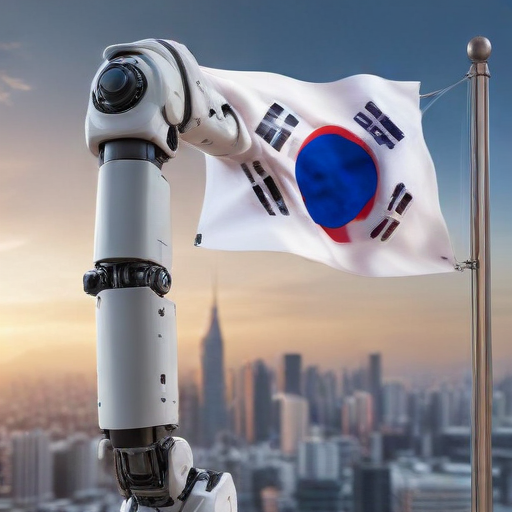South Korea is currently experiencing a unique boost in productivity driven by artificial intelligence (AI), despite the backdrop of rising tensions between the U.S. and China, which could pose challenges to its growth, according to analysts from Bank of America.
The semiconductor sector plays a crucial role in South Korea’s economy, constituting 17% of its exports. Recent reports indicate that the nation has emerged as a significant beneficiary of the AI revolution, with exports soaring over 50% year-over-year. Analysts project that South Korea’s robust investments in AI research and an increasing number of AI-related patents will enhance its position in adopting this transformative technology.
However, the analysts express concerns that escalating geopolitical tensions could disrupt the supply chain of semiconductors, particularly amid the strained relations between the U.S. and China. Although South Korea has successfully diversified its chip exports away from China, the country and Hong Kong still accounted for over 30% of South Korea’s chip exports in 2023, with exports to the U.S. reflecting similar figures.
The analysts warn that if geopolitical tension intensifies and the U.S. imposes stricter trade restrictions on advanced or AI-related chip exports to China, it could substantially hinder South Korea’s memory semiconductor exports. Furthermore, South Korean chip manufacturers rely on China for various chipmaking components and equipment. Should these tensions disrupt the supply chain, it would complicate the ability of Korean firms to procure the necessary tools for chip production.
The Biden administration has reportedly asked South Korea to limit exports of equipment and technology to China, particularly those used in manufacturing advanced memory chips and logic chips. South Korean officials are contemplating this request, mindful of potential repercussions for major corporations like Samsung and SK Hynix, both of which have significant operations in China, South Korea’s largest trading partner.
In the midst of these challenges, the Biden administration is also considering enforcing export controls, utilizing a regulatory measure known as the foreign direct product rule. This rule would prohibit the export of any goods produced with a certain percentage of U.S. intellectual property to any country, which could further complicate relations.
Overall, while there are notable challenges on the horizon, South Korea remains a central player in the global AI and semiconductor landscape. The country’s commitment to innovation and ongoing investments in technology could provide a pathway toward enduring growth and resilience in the face of geopolitical uncertainties.
In a hopeful twist, the advancements in AI could also lead to novel solutions that mitigate these geopolitical tensions and create new avenues for trade and collaboration.
